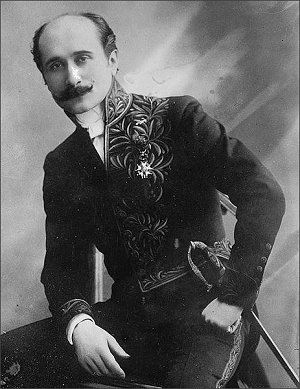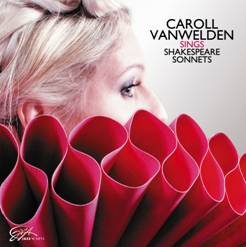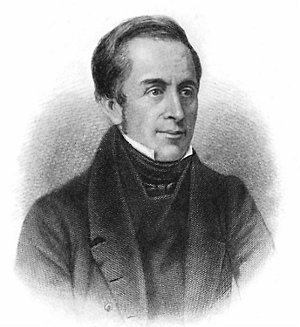Fleurs du Mal Magazine


Or see the index

The Sorrows of Young Werther (06)
by J.W. von Goethe
17 May 1771
I have made all sorts of acquaintances, but have as yet found no society. I know not what attraction I possess for the people, so many of them like me, and attach themselves to me; and then I feel sorry when the road we pursue together goes only a short distance. If you inquire what the people are like here, I must answer, “The same as everywhere.” The human race is but a monotonous affair. Most of them labour the greater part of their time for mere subsistence; and the scanty portion of freedom which remains to them so troubles them that they use every exertion to get rid of it. Oh, the destiny of man!
But they are a right good sort of people. If I occasionally forget myself, and take part in the innocent pleasures which are not yet forbidden to the peasantry, and enjoy myself, for instance, with genuine freedom and sincerity, round a well-covered table, or arrange an excursion or a dance opportunely, and so forth, all this produces a good effect upon my disposition; only I must forget that there lie dormant within me so many other qualities which moulder uselessly, and which I am obliged to keep carefully concealed. Ah! this thought affects my spirits fearfully. And yet to be misunderstood is the fate of the like of us.
Alas, that the friend of my youth is gone! Alas, that I ever knew her! Imight say to myself, “You are a dreamer to seek what is not to be found here below.” But she has been mine. I have possessed that heart, that noble soul, in whose presence I seemed to be more than I really was, because I was all that I could be. Good heavens! did then a single power of my soul remain unexercised? In her presence could I not display, to its full extent, that mysterious feeling with which my heart embraces nature? Was not our intercourse a perpetual web of the finest emotions, of the keenest wit, the varieties of which, even in their very eccentricity, bore the stamp of genius? Alas! the few years by which she was my senior brought her to the grave before me. Never can I forget her firm mind or her heavenly patience.
A few days ago I met a certain young V–, a frank, open fellow, with a most pleasing countenance. He has just left the university, does not deem himself overwise, but believes he knows more than other people. He has worked hard, as I can perceive from many circumstances, and, in short, possesses a large stock of information. When he heard that I am drawing a good deal, and that I know Greek (two wonderful things for this part of the country), he came to see me, and displayed his whole store of learning, from Batteaux to Wood, from De Piles to Winkelmann: he assured me he had read through the first part of Sultzer’s theory, and also possessed a manuscript of Heyne’s work on the study of the antique. I allowed it all to pass.
I have become acquainted, also, with a very worthy person, the district judge, a frank and open-hearted man. I am told it is a most delightful thing to see him in the midst of his children, of whom he has nine. His eldest daughter especially is highly spoken of. He has invited me to go and see him, and I intend to do so on the first opportunity. He lives at one of the royal hunting-lodges, which can be reached from here in an hour and a half by walking, and which he obtained leave to inhabit after the loss of his wife, as it is so painful to him to reside in town and at the court.
There have also come in my way a few other originals of a questionable sort, who are in all respects undesirable, and most intolerable in their demonstration of friendship. Good-bye. This letter will please you: it is quite historical.
The Sorrows of Young Werther (Die Leiden des jungen Werther) by J.W. von Goethe. Translated by R.D. Boylan.
To be continued
fleursdumal.nl magazine
More in: -Die Leiden des jungen Werther, Archive G-H, Goethe, Johann Wolfgang von

Edmond Rostand
(1868-1918)
Souvenir vague ou les parenthèses
Nous étions, ce soir-là, sous un chêne superbe
(Un chêne qui n’était peut-être qu’un tilleul)
Et j’avais, pour me mettre à vos genoux dans l’herbe,
Laissé mon rocking-chair se balancer tout seul.
Blonde comme on ne l’est que dans les magazines
Vous imprimiez au vôtre un rythme de canot ;
Un bouvreuil sifflotait dans les branches voisines
(Un bouvreuil qui n’était peut-être qu’un linot).
D’un orchestre lointain arrivait un andante
(Andante qui n’était peut-être qu’un flon-flon)
Et le grand geste vert d’une branche pendante
Semblait, dans l’air du soir, jouer du violon.
Tout le ciel n’était plus qu’une large chamarre,
Et l’on voyait au loin, dans l’or clair d’un étang
(D’un étang qui n’était peut-être qu’une mare)
Des reflets d’arbres bleus descendre en tremblotant.
Et tandis qu’un espoir ouvrait en moi des ailes
(Un espoir qui n’était peut-être qu’un désir),
Votre balancement m’éventait de dentelles
Que mes doigts au passage essayaient de saisir.
Votre chapeau de paille agitait sa guirlande
Et votre col, d’un point de Gênes merveilleux
(De Gênes qui n’était peut-être que d’Irlande),
Se soulevait parfois jusqu’à voiler vos yeux.
Noir comme un gros paté sur la marge d’un texte
Tomba sur votre robe un insecte, et la peur
(Une peur qui n’était peut-être qu’un prétexte)
Vous serra contre moi. – Cher insecte grimpeur !
L’ombre nous fit glisser aux chères confidences ;
Et dans votre grand oeil plus tendre et plus hagard
J’apercevais une âme aux profondes nuances
(Une âme qui n’était peut-être qu’un regard).
Edmond Rostand poetry
fleursdumal.nl magazine
More in: Archive Q-R, CLASSIC POETRY

George Gordon (Lord) Byron
(1788-1824)
And Thou Art Dead, As Young And Fair
And thou art dead, as young and fair
As aught of mortal birth;
And form so soft, and charms so rare,
Too soon return’d to Earth!
Though Earth receiv’d them in her bed,
And o’er the spot the crowd may tread
In carelessness or mirth,
There is an eye which could not brook
A moment on that grave to look.
I will not ask where thou liest low,
Nor gaze upon the spot;
There flowers or weeds at will may grow,
So I behold them not:
It is enough for me to prove
That what I lov’d, and long must love,
Like common earth can rot;
To me there needs no stone to tell,
‘T is Nothing that I lov’d so well.
Yet did I love thee to the last
As fervently as thou,
Who didst not change through all the past,
And canst not alter now.
The love where Death has set his seal,
Nor age can chill, nor rival steal,
Nor falsehood disavow:
And, what were worse, thou canst not see
Or wrong, or change, or fault in me.
The better days of life were ours;
The worst can be but mine:
The sun that cheers, the storm that lowers,
Shall never more be thine.
The silence of that dreamless sleep
I envy now too much to weep;
Nor need I to repine
That all those charms have pass’d away,
I might have watch’d through long decay.
The flower in ripen’d bloom unmatch’d
Must fall the earliest prey;
Though by no hand untimely snatch’d,
The leaves must drop away:
And yet it were a greater grief
To watch it withering, leaf by leaf,
Than see it pluck’d to-day;
Since earthly eye but ill can bear
To trace the change to foul from fair.
I know not if I could have borne
To see thy beauties fade;
The night that follow’d such a morn
Had worn a deeper shade:
Thy day without a cloud hath pass’d,
And thou wert lovely to the last,
Extinguish’d, not decay’d;
As stars that shoot along the sky
Shine brightest as they fall from high.
As once I wept, if I could weep,
My tears might well be shed,
To think I was not near to keep
One vigil o’er thy bed;
To gaze, how fondly! on thy face,
To fold thee in a faint embrace,
Uphold thy drooping head;
And show that love, however vain,
Nor thou nor I can feel again.
Yet how much less it were to gain,
Though thou hast left me free,
The loveliest things that still remain,
Than thus remember thee!
The all of thine that cannot die
Through dark and dread Eternity
Returns again to me,
And more thy buried love endears
Than aught except its living years.
“And Thou art Dead, as Young and Fair” is reprinted from Works. George Gordon Byron. London: John Murray, 1832.
George Gordon (Lord) Byron poetry
fleursdumal.nl magazine
More in: Archive A-B, Byron, Lord

Caroll Vanwelden Sings Shakespeare Sonnets
Caroll Vanwelden is a Belgian Jazz singer/songwriter/pianist who just released her new album “Caroll Vanwelden Sings Shakespeare Sonnets” in which she combines Shakespeare´s sonnets with her own compositions to a ground breaking, fresh and emotional jazzy sound. The amazing intensity of her compositions elevates Shakespeare´s words to a new dimension. Caroll Vanwelden´s voice transmits accuracy and comfort with an astonishing gift to always create the appropriate ambiance.
The artist presents each of the selected sonnets in an exceptional setting: at times forceful, intense, driven, at times, relaxed, mellow, smooth, then again vibrant and vigorous or cheerful and even a little bit shy.
Caroll Vanwelden, a graduate of the famous London Guildhall School of Music and Drama – with illustrious graduates such as Orlando Bloom, Daniel Graig and Dave Holland – is accompanied by a great band with the skill to play music that combines unparalleled transparency with plasticity. With this album she propels the great Shakespeare unexpectedly into the world of big jazz librettists and interprets his lyrics into contemporary music in wonderful arrangements.
NDR: Jazz-album of the week 43//Financial Times Deutschland: 5 stars//Stereo Magazine: CD of the Month & AudioHighlight of the Month//Fono Forum: Musik & Klang 5 stars//MDR: take 5 CD Suggestions//Stereoplay:Klangtipp//JazzinBelgium: Album of the week
“On this album you’ll find amazing art at the same level as Norma Winstone, Diana Krall or Randy Crawford.” CONCERTO (Austria) by Gerhard Strejcek 8.10.2012
“This album has all the potential to be elected album of the year.” FONO FORUM (Deutschland) by Thomas Hintze 12/2012
“….resumed as an amazing European Jazz Album.” CRESCENDO (Deutschland) by Anna Hermann 12.10.2012
Caroll Vanwelden: vocals, piano, arrangements
Thomas Siffling: trumpet, flugelhorn
Mini Schulz: double bass
Markus Faller: drums, perc.
Coming up soon (2014): new album with Compositions on Shakespeare Sonnets II.
Musicians: Caroll Vanwelden played with or still plays with Thomas Siffling, Mini Schulz, Markus Faller, Obi Meinhard Jenne, Rodrigo Villalon, Phill Pesket (Molokko), Victoria Freestone, Jez Franks, Rob Mullarky (Seven), Johan Sabbe, Dirk Van der Linden , Henk de Laat (Enrique Tarde), Jean Van Lindt (The Swing Dealers), Vincent Mardens (The Swing Dealers), Tars Lootens, Piet Meerschaut, Chris Mentens, Swa Mercelis, Johan Joris, Lieven Cambré, Stijn Deldaele, Mike Roelofs, Ron van Stratum, Frank Peeters, Sam Vloemans, Luiz Marquez, Dominique Vantomme, Geert Roelofs, Peter Hermesdorf, Marc Huynen, Rogier Van Wegberg, Arie Storm, Jan Mües, Mario Vermandel, Luc Van den Bossche, Stijn Wauters, Janos Bruneel, Hans Van Oost, Andrew Cleyndert, Jan De Haas, Tom Mahieu,… and many more……
2014 Caroll Vanwelden concerts
31/01 BIX Jazzclub Stuttgart with Thomas Siffling, Mini Schulz and Rodrigo Villalon
09/02 Backnang Backnanger Bürgerhaus with Thomas Siffling, Mini Schulz and Rodrigo Villalon
03/04 Sankt Ingbert Jazz Festival 20h Stadthalle St. Ingbert with Thomas Siffling, Mini Schulz and Rodrigo Villalon
11/04 Hemingway Lounge Karlsruhe with Thomas Siffling, Mini Schulz and Florian Alexandru Zorn
26/04 Bremen Shakspeare Company with Thomas Siffling, Mini Schulz and Florian Alexandru Zorn
15/07 &16/07 Shakespeare Festival im Globe Neuss with Thomas Siffling, Mini Schulz and Rodrigo Villalon
06/07 Mittelrhein Musik Festival together with Andrea Sawatzki in Burg Stahleck with “Don’t Explain” project
24/06 Luxemburg CC
09/08 Rheingau Festival 19 Uhr with our Shakespeare Project with Thomas Siffling, Mini Schulz and Rodrigo Villalon
18/09 Gelsenkirchen in Lüttinghof Die Burg im Wasser with our Shakespeare Project with Thomas Siffling, Mini Schulz and Rodrigo Villalon
For more info & reviews Website: www.carollvanwelden.be
fleursdumal.nl magazine
More in: # Music Archive, Art & Literature News, Shakespeare, William

The Sorrows of Young Werther (05)
by J.W. von Goethe
15 May 1771
The common people of the place know me already, and love me, particularly the children. When at first I associated with them, and inquired in a friendly tone about their various trifles, some fancied that I wished to ridicule them, and turned from me in exceeding ill-humour. I did not allow that circumstance to grieve me: I only felt most keenly what I have often before observed. Persons who can claim a certain rank keep themselves coldly aloof from the common people, as though they feared to lose their importance by the contact; whilst wanton idlers, and such as are prone to bad joking, affect to descend to their level, only to make the poor people feel their impertinence all the more keenly.
I know very well that we are not all equal, nor can be so; but it is my opinion that he who avoids the common people, in order not to lose their respect, is as much to blame as a coward who hides himself from his enemy because he fears defeat. The other day I went to the fountain, and found a young servant-girl, who had set her pitcher on the lowest step, and looked around to see if one of her companions was approaching to place it on her head. I ran down, and looked at her. “Shall I help you, pretty lass?” said I. She blushed deeply. “Oh, sir!” she exclaimed. “No ceremony!” I replied. Sheadjusted her head-gear, and I helped her. She thanked me, and ascended the steps.
The Sorrows of Young Werther (Die Leiden des jungen Werther) by J.W. von Goethe. Translated by R.D. Boylan.
To be continued
fleursdumal.nl magazine
More in: -Die Leiden des jungen Werther, Archive G-H, Goethe, Johann Wolfgang von

William Blake
(1757-1827)
A POISON TREE
Was angry with my friend:
I told my wrath, my wrath did end.
I was angry with my foe:
I told it not, my wrath did grow.
And I watered it in fears,
Night and morning with my tears;
And I sunnèd it with smiles,
And with soft deceitful wiles.
And it grew both day and night,
Till it bore an apple bright;
And my foe beheld it shine,
And he knew that it was mine,
And into my garden stole,
When the night had veiled the pole:
In the morning glad I see
My foe outstretched beneath the tree.
William Blake poetry
fleursdumal.nl magazine
More in: Archive A-B, Blake, William, DRUGS & DISEASE & MEDICINE & LITERATURE

Poppenspeler
De touwtjes liggen losjes in zijn vingers, als teugels.
Hij suggereert met broze dingen een danseuse.
Ze loopt niet, dwarrelt: vlinderachtig en verweesd.
Zijn handen bewegen zich als reigervleugels.
Iedereen houdt adem in wanneer met gracieuze
golvingen haar leven stokt, er even echt geweest.
Zij liet zich zachtjes overlijden.
Bert Bevers
uit Onaangepaste tijden, Zinderend, Bergen op Zoom, 2006, © Bert Bevers
fleursdumal.nl magazine
More in: Archive A-B, Bevers, Bert

Acht vertalingen van gedichten van T.T. Cloete (1924)
door Carina van der Walt & Geno Spoormans
6.
T.T. Cloete
Schering en inslag
die begin was ordinêr: geel maan, plaasstoep
nou hou ek jou voellose hand vas
as jy “Here, hoor my, Here help” roep
in jou diep ingeslape gebed
ek is bestem om my prewel in te las
“Here, word wakker” sag saamgebid
drie-uur in die nag help ek jou loop na die toilet,
laat ek jou slap liggaam regop sit
ek voel jou terugdink aan die dik los
glansende lang stort van jou harebos
diep in die nag
in ’n onvrugbare terugverlang
na jou jongmeisie-regop haarveergang
met die klein sampioene ferm maar malvalekkersag
dan vee ek jou nat
oë af in myne en ek vat
aan jou heupe en ek interpoleer
my gebede en verlangens met joune heen en weer
sigsag
skering en inslag
ek sien hoe jy oor die 100 tree-hekkies gly
met die skoot oop en die dye
ek sien die sweet op jou moeë voorkop
jy kon die flinkste klop
toe daar nog kalk was in jou bene
ek hou
jou vas ek dans met jou
jou skoot is sag voelbaar toegevou
vol liefde steriel
jy het die allersagste vel
’n fyn antieke griekse profiel
ek proe jou oorlel
snags as ek jou sag hoor snik
en jou nat wronge om jou wange skik
T.T. Cloete
schering en inslag
het begon heel gewoontjes: volle maan, een boerderij
nu hou ik jouw voelloze hand vast
terwijl je in jouw diep ingeslapen gebed
“Here, help” roept “Here, hoor mij”
ik ben bestemd om mijn geprevel aan te passen
en “Here, wordt wakker” daartussenin te lassen
om drie uur in de nacht help ik je naar het toilet,
heb ik jouw slappe lichaam rechtop gezet
ik voel hoe je terugdenkt aan je dikke bos haar
hoe je die glanzend los liet met één handgebaar
diep in de nacht
vol onvruchtbaar terugverlangen
naar al jouw meisjesachtige springveergangen
je kleine ferme champignons, als suikerspek zo zacht
veeg ik jouw natte ogen
af in die van mij, pak jou hoge
heupen en ik interpoleer
mijn gebeden en verlangens met die van jou heen en weer
zigzag
schering en inslag
ik zie je nog zwevend over de hordes glijden
met je schoot open en je dijen
zweet verschijnt op je voorhoofd als een waas
eens was jij iedereen de baas
toen er nog kalk was in jou botten
ik hou
je vast en dans met jou
je schoot is nu een teer gesloten vouw
liefdevol steriel
jij hebt het allerzachtste velletje
een fijn klassiek profiel
ik proef je oorlelletje
s ‘nachts als ik je zacht hoor snikken
en mijn handen jouw natte wrongen om je wangen schikken
T.T. Cloete 8 gedichten: Vertalingen uit het Zuid-Afrikaans door Carina van der Walt & Geno Spoormans 2010
(wordt vervolgd)
fleursdumal.nl magazine
More in: Archive C-D, T .T. Cloete, Walt & Spoormans
![]()
Nullen en enen
Hoe ik je een tijd lang nergens vond
en daarna alleen in nullen en enen
de digitaal van facebook
het was min of meer hetzelfde
je stond in een lijstje van mensen die ik toch nooit belde
de herinnering vergeelde rouwomrand
je werd een stukje verleden dat ik oppakken kon
dat je plots opnieuw in je gedaante van muze
voor mijn deur stond was een verklaarbaar wonder
de nullen en enen zijn vrouw geworden logisch
ik kan je aanraken en met je praten
er is zelfs een kans dat je me begrijpt.
Martin Beversluis
fleursdumal.nl magazine
More in: Archive A-B, Beversluis, Martin

Dichter Martin Beversluis met Hongerlief in Café Joris in Tilburg
Muzikaal dichterscollectief Hongerlief, met de Tilburgse dichter Martin Beversluis in haar gelederen, treedt zaterdag 24 januari op in Café Joris op het Piusplein 5 in Tilburg. Bereidt u voor op een zinderende avond vol muziek en poëzie, met gastoptredens van voormalig stadsdichter Esther Porcelijn en slamdichter Daan Taks. Hongerlief begint om 22.00 uur. De toegang is gratis.
Figuurlijk is Hongerlief vooral een feest; een viering van muziek en taal, waarin de deelnemers met elkaar zoeken naar de som die de delen overstijgt.
Letterlijk is Hongerlief een poëtisch collectief. Naast Martin Beversluis bestaat Hongerlief uit de dichters Pom Wolff, Mike Platenkamp, Martin Aart de Jong, Amber Helena Reisig, Wibo Kosters en muzikant/ zanger Bjorn van Rozen.
Feitelijk is Hongerlief een samenkomen van ervaren podiumdichters, verbonden door muziek. In elkaar jarenlang op podia ontmoeten, ontstonden er samenwerkingsverbanden, kleine magische momenten, en de behoefte die momenten meer ruimte te geven. Deze kleine magische momenten deelde Hongerlief op het podium al met tal van bekende en onbekende dichters en dichteressen, onder wie Marion Bloem en Ellen Deckwitz.
Met zevenmijlslaarzen loopt het collectief door uiteenlopende thema’s, waarbij er ruimte is om te dichten zonder valnet. En je kunt het op 24 januari in café Joris komen zien.
fleursdumal.nl magazine
More in: Art & Literature News, Beversluis, Martin

The Sorrows of Young Werther (04)
by J.W. von Goethe
13 May 1771
You ask if you shall send me books. My dear friend, I beseech you, for the love of God, relieve me from such a yoke! I need no more to be guided, agitated, heated. My heart ferments sufficiently of itself. I want strains to lull me, and I find them to perfection in my Homer. Often do I strive to allay the burning fever of my blood; and you have never witnessed anything so unsteady, so uncertain, as my heart. But need I confess this to you, my dear friend, who have so often endured the anguish of witnessing my sudden transitions from sorrow to immoderate joy, and from sweet melancholy to violent passions? I treat my poor heart like a sick child, and gratify its every fancy. Do not mention this again: there are people who would censure me for it.
The Sorrows of Young Werther (Die Leiden des jungen Werther) by J.W. von Goethe. Translated by R.D. Boylan.
To be continued
fleursdumal.nl magazine
More in: -Die Leiden des jungen Werther, Archive G-H, Goethe, Johann Wolfgang von

Thomas Hood
(1789-1845)
The Lay of the Laborer
A spade! a rake! a hoe!
A pickaxe, or a bill!
A hook to reap, or a scythe to mow,
A flail, or what ye will—
And here’s a ready hand
To ply the needful tool,
And skill’d enough, by lessons rough,
In Labor’s rugged school.
To hedge, or dig the ditch,
To lop or fell the tree,
To lay the swarth on the sultry field,
Or plough the stubborn lea;
The harvest stack to bind,
The wheaten rick to thatch,
And never fear in my pouch to find
The tinder or the match.
To a flaming barn or farm
My fancies never roam;
The fire I yearn to kindle and burn
Is on the hearth of Home;
Where children huddle and crouch
Through dark long winter days,
Where starving children huddle and crouch,
To see the cheerful rays,
A-glowing on the haggard cheek,
And not in the haggard’s blaze!
To Him who sends a drought
To parch the fields forlorn,
The rain to flood the meadows with mud,
The blight to blast the corn,
To Him I leave to guide
The bolt in its crooked path,
To strike the miser’s rick, and show
The skies blood-red with wrath.
A spade! a rake! a hoe!
A pickaxe, or a bill!
A hook to reap, or a scythe to mow,
A flail, or what ye will—
The corn to thrash, or the hedge to plash,
The market-team to drive,
Or mend the fence by the cover side,
And leave the game alive.
Ay, only give me work,
And then you need not fear
That I shall snare his Worship’s hare,
Or kill his Grace’s deer;
Break into his lordship’s house,
To steal the plate so rich;
Or leave the yeoman that had a purse
To welter in a ditch.
Wherever Nature needs,
Wherever Labor calls,
No job I’ll shirk of the hardest work,
To shun the workhouse walls;
Where savage laws begrudge
The pauper babe its breath,
And doom a wife to a widow’s life,
Before her partner’s death.
My only claim is this,
With labor stiff and stark,
By lawful turn, my living to earn,
Between the light and dark;
My daily bread, and nightly bed,
My bacon, and drop of beer—
But all from the hand that holds the land,
And none from the overseer!
No parish money, or loaf,
No pauper badges for me,
A son of the soil, by right of toil
Entitled to my fee.
No alms I ask, give me my task:
Here are the arm, the leg,
The strength, the sinews of a Man,
To work, and not to beg.
Still one of Adam’s heirs,
Though doom’d by chance of birth
To dress so mean, and to eat the lean
Instead of the fat of the earth;
To make such humble meals
As honest labor can,
A bone and a crust, with a grace to God,
And little thanks to man!
A spade! a rake! a hoe!
A pickaxe, or a bill!
A hook to reap, or a scythe to mow,
A flail, or what ye will—
Whatever the tool to ply,
Here is a willing drudge,
With muscle and limb, and woe to him
Who does their pay begrudge!
Who every weekly score
Docks labor’s little mite,
Bestows on the poor at the temple door,
But robb’d them over night.
The very shilling he hoped to save,
As health and morals fail,
Shall visit me in the new Bastille,
The Spital, or the Gaol!
Thomas Hood poetry
fleursdumal.nl magazine
More in: Archive G-H, CLASSIC POETRY
Thank you for reading Fleurs du Mal - magazine for art & literature